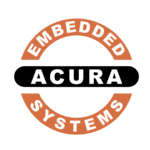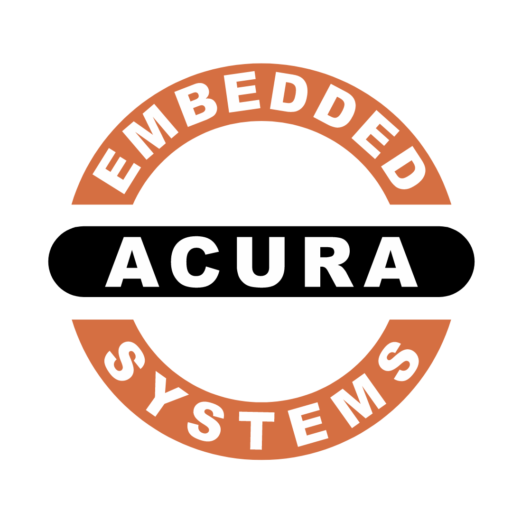The Best Industrial PC

In Acura, we take equipment longevity seriously. Our IPC enables engineers to explore manufacturing opportunities using big data and IoT initiatives without compromising the traditional reliability, robustness, and long-term availability needed to maximize machine uptime for as long as it takes.
Our IPC uses only Intel industrial CPUs that can guarantee a minimum availability of 10 years. All internal components are managed by a controlled bill of materials, which means change and availability are managed. We don’t want you to have surprises or changes without notice!
Reasons to use the Industrial PC
1. Form Factor
Unlike desktops, the Industrial PC has several cabinet options suitable for installation on the factory floor, with formats ranging from a 22” Acupanel to a super compact IPC for DIN rail mounting or for wall or panel mounting with the built-in touch screen display reducing the cost with adaptations for proper fixing in the industrial plant.

2. Application Performance and Longevity
Today’s industrial computers have performance equivalent to desktops combined with a longer life cycle, getting the best of both worlds and eliminating the risk of obsolescence that the desktop will inevitably suffer.
3. Expansion and I/O
The IPC has multiple Ethernet, USB, and serial communication ports, it also has multiple video outputs in addition to ISA, PCI, PCI express, mini PCIe, Compact PCI, and PXI expansion slots.
4. Customization
The IPC, due to its characteristic of use in specific applications, is designed or customized to meet technical requirements that could never be met by a conventional desktop.

5. Total Cost of Ownership
Industrial PC requires a higher initial investment, but over time the total cost of ownership is much lower compared to the cost of repairing, regularly replacing business PCs that are not suited to support the demands of industrial use and the risk of having the investment realized in the acquisition of machines and systems lost due to the obsolescence of the commercial PC, which occurs much more slowly with the industrial PC that has a much longer life cycle.
What sets industrial computers apart?
An industrial computer has characteristics that are quite different from those found in a home or office computer, in particular, the following:
- Temperature: Common PCs normally work at 35°C, while industrial PCs work properly at temperatures up to 85°C. Some extremely robust and customized models are capable of operating in conditions from -70°C.
- Shock and vibration: Industrial computers are much more subject to shock and vibration. As such, many of its components, including hard drives, various cards, and optical readers, are mounted on shock absorbers that protect them from impacts and vibrations.
- Dust: Dust accumulation on a PC can lead to overheating and cause the system to malfunction. Industrial computers with one or more fans are equipped with filters that prevent dust from entering. Although there are more and more industrial PCs without ventilation, the so-called fanless PCs, for environments with a high concentration of dust, it is strongly recommended to choose a PC equipped with a ventilation system.
- Humidity: Industrial computers are designed to be more resistant to humidity.
- Power supply: as voltage problems are common in factories, industrial PCs are equipped with stabilized power supplies that provide adjustable DC voltages.
- Modularity: Industrial computers offer a wide range of expansion options, which makes it possible to later increase storage space, add cards, etc. This modularity facilitates the continuous adaptation of the computer to the evolution of the application’s needs, allowing it to keep the same equipment for longer.
- Lifespan: The life of an industrial computer is, on average, 7 years. Industrial PC manufacturers guarantee the availability of replacement components on the market for a longer time, extending the possibility of repairing equipment.
What are the technical characteristics to consider?
As with non-industrial computers, here too the offer is very varied, and your choice will essentially depend on the level of performance you want for your PC and on the area of application of the industrial PC, that’s why you first discuss the requirements and the environmental conditions that are decisive for the design and designs of the industrial PC hardware:
- Processor type: this is the first criterion to consider when deciding to purchase an industrial PC. Also called a CPU (Central Processing Unit), the processor executes the instructions of a computer program in machine code. The choice of processor will depend on the computing power required by your application. For simple uses like data acquisition, it doesn’t need a high-performance CPU. For complex calculations in CAD/CAM or for multitasking applications, you will need a more powerful processor. Cost and energy consumption are also criteria to be taken into account.
- Memory: RAM, or random-access memory, allows you to quickly send data to the processor. The RAM memory chosen will affect the speed of the PC.
- Storage: data can be stored on an HHD hard disk, an SSD disk, or using external storage (on an external hard disk, on a flash drive, in the Cloud, etc.).
- Expansion ports and slots: these are the PC inputs and outputs for other equipment, such as the output for connecting the monitor, the video output, etc.
- Operating System (OS): Windows, Linux, etc. The operating (or operating) system must be compatible with existing equipment and systems.
IPCs in the classic 15.6-inch format, such as the Roughneck series from Acura, are really powerful with a high level of reliability in series production. This is ensured by the Intel processors. Another special feature of the Roughneck is the diverse connectivity. and two display ports offer almost limitless connection options. Two front fans ensure reliable cooling.



